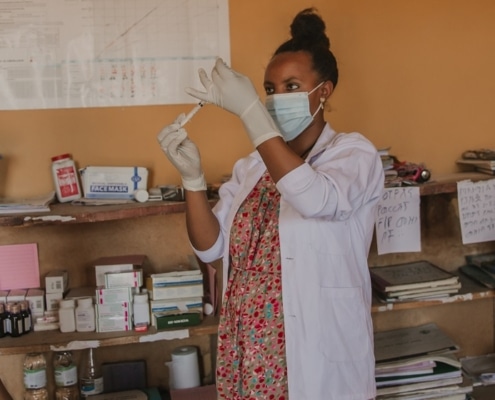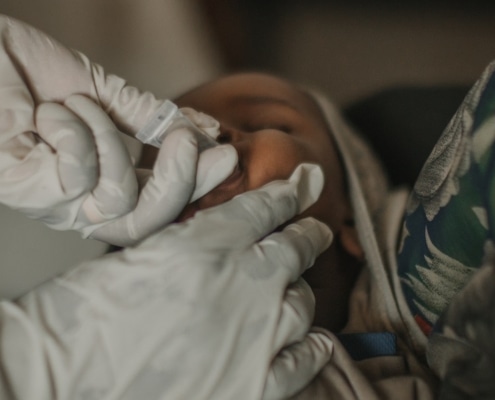Health
Improving maternal and child health is essential to sustainable development.
Ethiopia has one of the world’s highest rates of maternal deaths and disabilities in the world. Women have a one in 52 chance of dying from childbirth-related causes each year. One in 20 children die before their first birthday.
A lack of access to health care and high rates of child marriage create serious challenges for the survival of mothers and their children in rural areas. But improvements are being made, largely due an innovative, community-based program attempting to deliver primary care across the country by female Health Extension Workers.
Health Post Projects
For most people living in rural villages in Ethiopia, their first point of contact within the health system is usually with a Health Extension Worker. Health Extension Workers provide primary health care services, with a special focus on maternal and child health.
Health Extension Workers are based in Health Posts, but they spend much of their time in the villages, regularly visiting households and checking in with women. They are focused on improving maternal, neonatal and child health; improving access to family planning and reproductive health; preventing, controlling, and treating infectious diseases including HIV/AIDS, tuberculosis, and malaria; increasing education around sanitation and hygiene; and improving the nutritional status of women, infants and young children.
Research has shown that Health Extension Workers are making a real difference.
We are working to improve their reach, by constructing new Health Posts in remote areas, where women and girls face the most obstacles in accessing health care.





